
How do I make my website voice search friendly?

“Marco?”
If your first instinct was to reply “Polo,” then you at least have some experience with voice search. Unfortunately, we’re not here to talk about our fond memories of timeless schoolyard games.
Like you, voice search has grown up a lot over the years. It might come as a bit of a surprise, but voice search technology as we know it today—you know, that little blue microphone in a Google search box—hasn’t even been around for a decade.
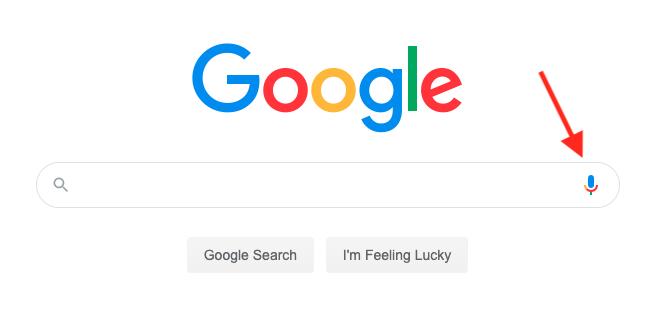 Step 1: Click the microphone. Step 2: Tell Google your deepest, darkest secrets.
Step 1: Click the microphone. Step 2: Tell Google your deepest, darkest secrets.
Before then, if you were under the age of 65 and caught talking to your glowing rectangle of choice, you were immediately labeled a lunatic and carted off to the nearest institution.
Now? It’s practically the norm. In fact, studies show that 44% of adults use voice search technology every day.
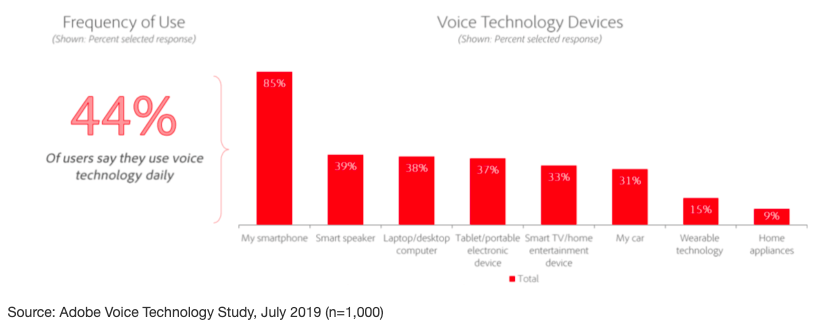
The best (worst?) part is, it’s not just screens that people are blathering at anymore either.
We’re asking our Amazon Echos in the kitchen how long it takes to bake a quiche. We’re demanding our smart cars navigate us to the nearest Chick-fil-A because we have zero self-control. We’re even asking our refrigerator to play our favorite song on Spotify—because we can.
It’s an absolute bonkers world we live in, folks.
Why should you care about voice search?
If my ramblings above haven’t already convinced you, voice search is poised to be the wave of the future. It certainly doesn’t take a modern-day Nostradamus to see the writing on the wall hear the words in the wind.
Do I think it’s going to replace text search? Absolutely not. But like the desktop vs. mobile battle before it, there are plenty enough searches to sustain both.
How is it different from a text search?
When it comes to text search, we’ve been trained for years to write for the Google algorithm, making our queries sound more like robotic ramblings than any sort of intelligent question.
Disclaimer: Of course, we at Perrill never write for algorithms. We exclusively write for people, which, interestingly enough, is exactly what the algorithms want to see these days!



Not only that, but people can be surprisingly lazy. While the average person can type around 40 words per minute (wpm), that same person can rattle off at least 150 wpm (or 350 wpm if you’re a character on Gilmore Girls).
On the other hand, searching by voice is much faster, easier, and more conversational. Our previous searches now look something like this:



Now those are some search queries your 6th grade English teacher would be proud of (assuming they can turn a blind eye to basic capitalization and punctuation).
What does this mean for your website?
Well, if nearly half your audience is voice searching, and you’re still hyper-focused on ranking for grandpa and his clickety-clack keyboard, you could be missing out on a lot of traffic.
You’re not our nation’s overstressed highway system. You want all the traffic you can get.
The good news is, there are plenty of ways to make sure your website is fully prepared to deliver quality content to voice searchers. Here are five things you can do to start blasting your way to the top of the SERPs.
5 tips for optimizing your content for voice search
1. Make sure your content clearly answers your customers’ questions
As I mentioned above, voice searchers absolutely love to ask questions. A recent study suggests that nearly 20% of all voice search queries were triggered by the following 25 keywords.
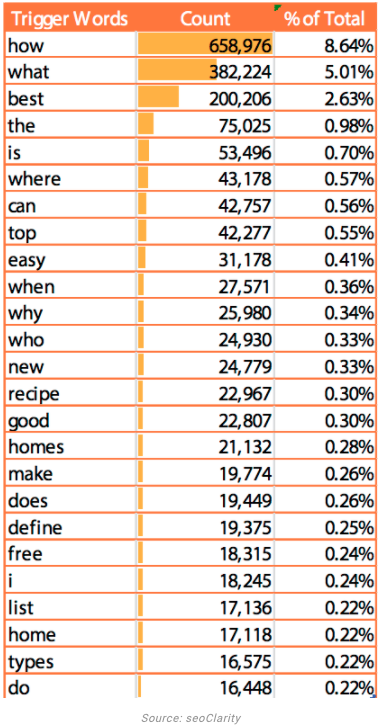
As you can see, many of the top trigger words form the start of a question (“how,” “what,” “is,” etc.). Even the ones that aren’t obvious question starters (think the 5 W’s) are merely shortened versions (“best” instead of “what’s the best” for example).
With so many questions being thrown to the wind, you want to make sure the content on your website actually answers those questions.
How do I know what questions my audience is asking?
There are plenty of simple and straightforward ways to discover these data:
- Dig into your Google Search Console Top Queries report.
- Use a popular search tool, such as AnswerThePublic or UberSuggest.
- See what people are asking on FAQ sites like Quora or Yahoo Answers.
- Go down the rabbit hole that is Google’s “People also ask” feature.

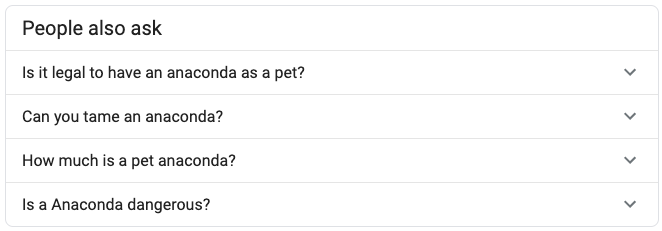
Now that you know the right questions, you can begin to flesh out the answers on your site via a detailed FAQ, a series of authoritative blog posts, or other similar page content.
Just make sure your answers are concise (29 words or less) and written at a 9th-grade reading level. Oh, and the average voice search result page is 2,312 words, so you better get typing.
[Edit: That’s about 29% longer than this post, for reference. Obviously, it’s not easy.]
Do that, and Google will soon take notice and rank your site accordingly.
2. Ensure your local listings are complete and accurate
Disclaimer: If you are not a local business, hop on over to the next section.
If the majority of voice searches are performed while on-the-go or otherwise busy, it shouldn’t surprise anyone to hear that 58% of consumers use voice search to find local business information, with 46% of those doing it in on a daily basis.
What are they searching for exactly? Predominantly, it’s going to things like directions, business hours, contact info, reservations, reviews, parking info, and the like.
What’s great is that all this information can be quickly and easily found in your local listing. If you haven’t done so already, make sure you add or claim your business on Google My Business (GMB).
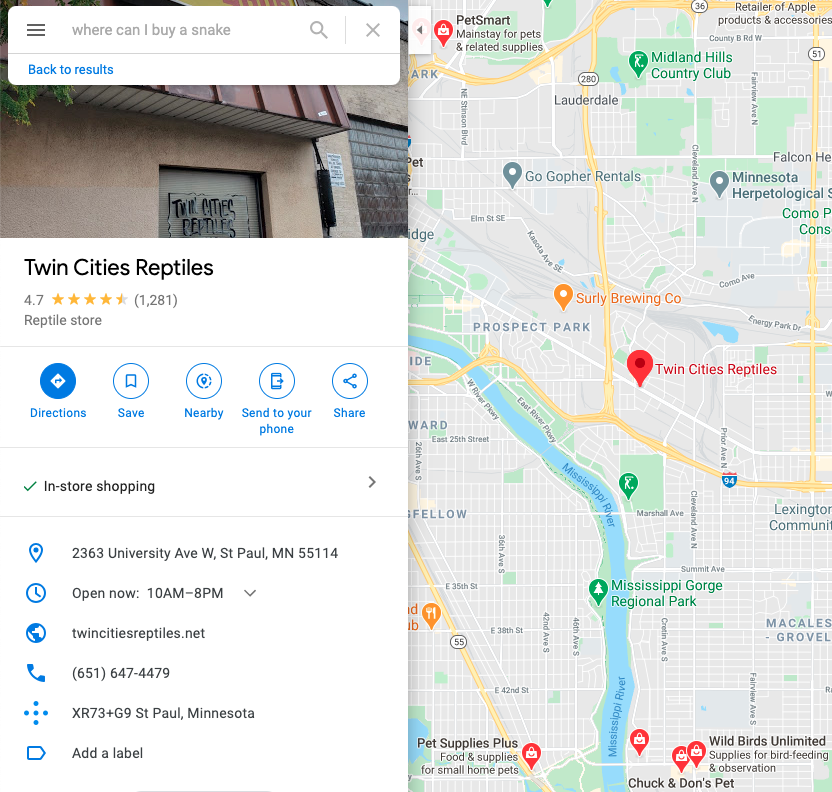 A properly completed GMB profile can help potential snake buyers in the area locate your business, for example.
A properly completed GMB profile can help potential snake buyers in the area locate your business, for example.
Since smartphones and other voice-assisted devices have limited displays, voice SERPs tend to prioritize local business listings first, since they know most users are trying to find nearby businesses.
The more up-to-date and accurate your information is, the more useful it will be to your customers. If you’d like to learn more, read our guide on how to thoroughly complete your GMB profile and maximize your listing.
3. Use structured data to help search engines provide more relevant results
Ah, structured data. If you haven’t yet had the opportunity to bore your extended family with talk of what you do on an average Tuesday morning, this is your golden ticket.
Structured data, essentially, are schema markups that more precisely communicate to Google and other SERPs what the content on your website actually contains.
If you have a FAQ or How-To section on your page, for example, and Google “knows” that’s what it is, you’re far more likely to appear higher in the search results, quite often as a Featured Snippet.
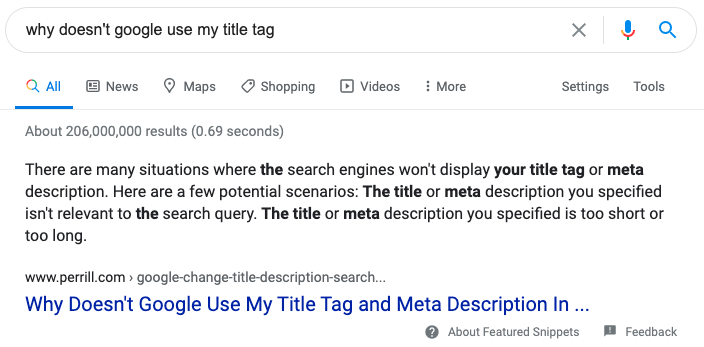 Our structured data helps inform Google that we have an authoritative answer to this particular question.
Our structured data helps inform Google that we have an authoritative answer to this particular question.
While not a ranking factor in and of itself, web pages that have proper schema markup tend to rank better, especially when it comes to voice search.
If you came out of this section more confused than ever, I certainly can’t blame you. Fortunately, it’s reasons like this that local SEO experts exist. And for reasons I’ll never understand, they actually like doing this sort of thing.
 Featured snippets aren’t limited to text either. They can include images and videos too, as seen here.
Featured snippets aren’t limited to text either. They can include images and videos too, as seen here.
4. Target (and bid on) long-tail keywords
Remember earlier when we discussed the longer, sometimes full-sentence queries voice searchers were using? These almost always fall into the category of long-tail keywords.
Long-tail keywords have significantly lower monthly search volume, but in turn, generate a far greater likelihood of conversion. Not only that, but they’re usually far less competitive, making it easier to rank #1.
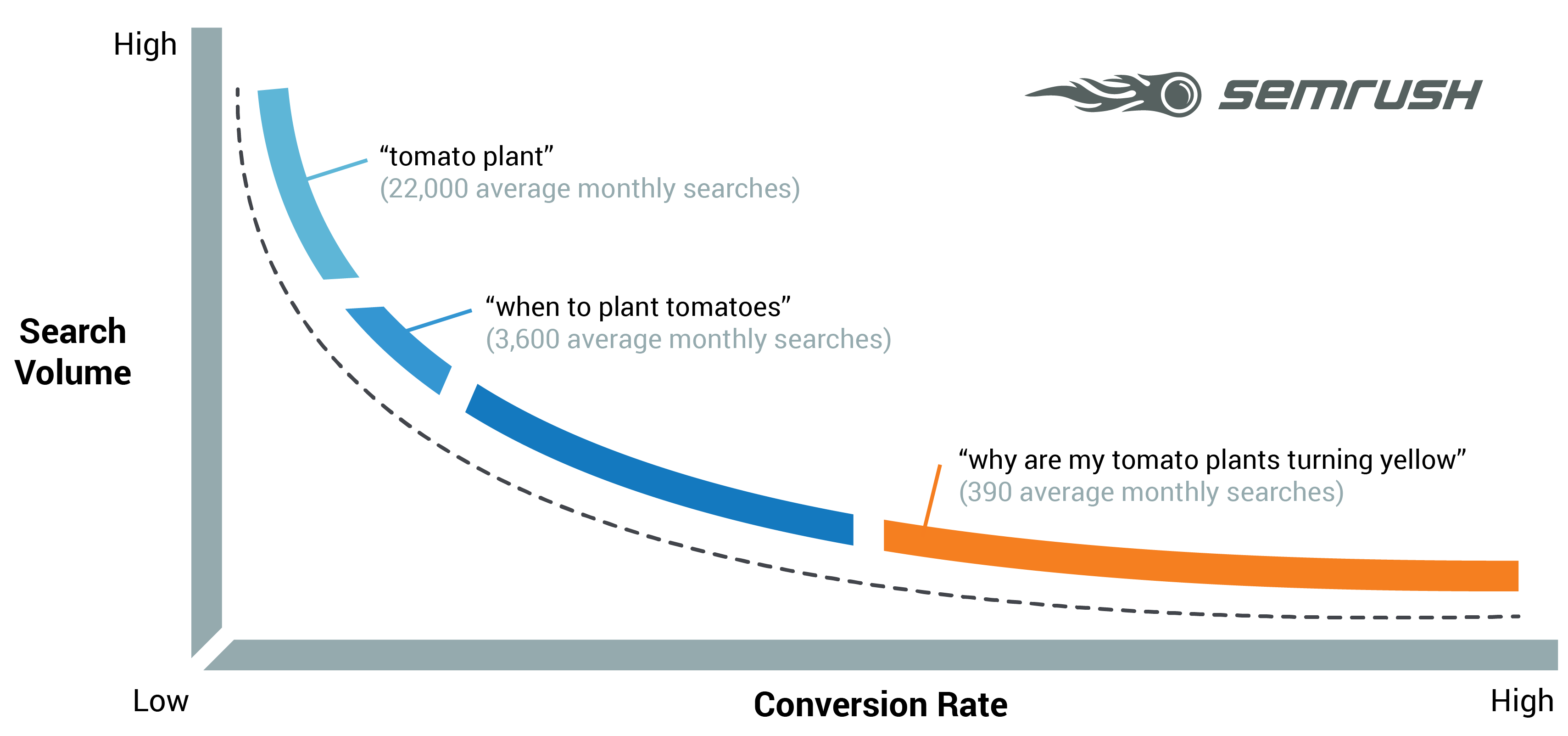 Via SEMrush
Via SEMrush
Simply optimize the content on your site and in your metadata to rank for these long-tail keywords, and you’ll soon corner the voice search market. Savvy PPC specialists are on top of this trend too and will often snag handfuls of these keywords at near bargain-bin bids (try saying that 3x fast).
So, while many SEO experts and advertisers in your industry are duking it out over the top 30% of high-volume keywords, you can keep the remaining 70% almost all to yourself.
5. Make sure your site is fast and responsive
With the vast majority of voice search commands happening on mobile, smart home devices, and wearable tech, it’s imperative that your website has a responsive design that functions flawlessly on any device.
Having a site that loads fast is just as important. After all, when you ask your voice assistant a question, you don’t want to stand around all day waiting for an answer. You’ve got things to do and snakes to raise.
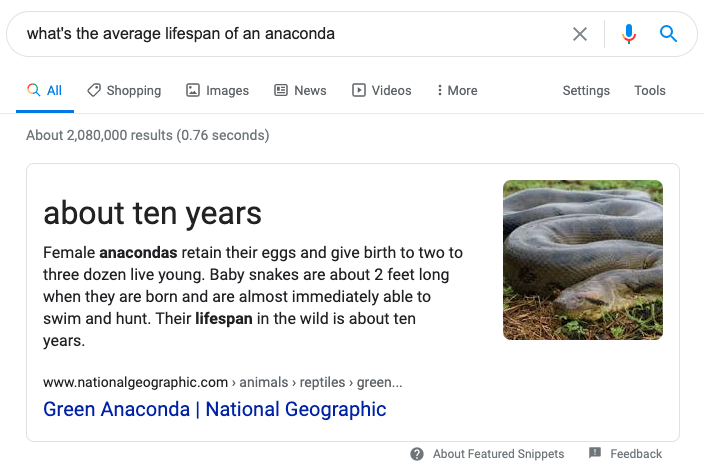 That’s . . . an awfully long time.
That’s . . . an awfully long time.
Google is well aware of this fact too. While page speed has been a ranking factor for some time now, it’s more important than ever in the era of voice search.
In fact, one study showed that the average Google Home result page loads in only 4.6 seconds, which is 52% faster than the average page. If your site’s page speed can’t compete with that (you can check it here), it may be time to do something about it.
“Ok, Google: Where can I go for help?”
If you take away only one thing from this article (besides “don’t buy a pet anaconda on a whim!”), it should be that voice search isn’t going anywhere. While there are still a lot of unknowns, we do know that voice assistants will continue to become more intelligent, accurate, and eerily human-like.
Now that your eyes are open to the vast potential of voice search, it’s time to ensure that your website is prepared to respond in kind. The best way to do that is to partner with a true expert in the digital realm.
As the original Twin Cities digital marketing agency, Perrill has been helping clients win online for over 25 years, and we’re ready to do it for you. Contact us today and we’ll show you how to make the results speak for themselves—literally.
Now if you’ll excuse me, I have to look into something quick.







